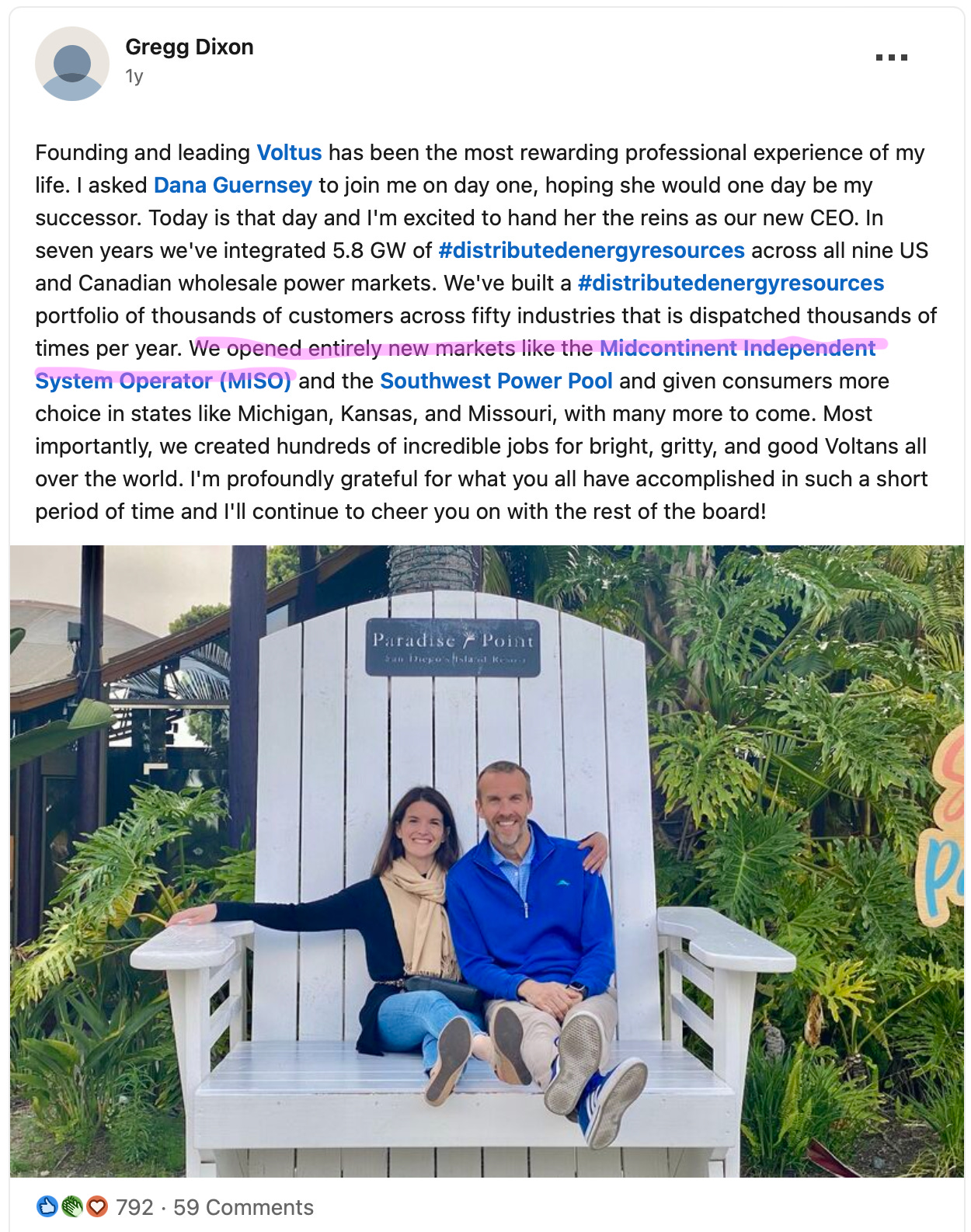Monkey Business
Last month the entire country of Sri Lanka experienced a blackout for multiple hours because… checks notes… a monkey “came into contact with a grid transformer“.
Sri Lanka is no stranger to significant blackouts, and people were justifiably sceptical as to whether a monkey was actually the cause of the blackout, or just an excuse to cover up continued mismanagement of the grid.
Interestingly this article implicates our favourite DER, the humble rooftop PV system, in the monkey saga. The suggestion is that low hydro-electric generation during the dry season and large amounts of rooftop PV yield low inertia conditions and an insecure grid — ripe for an errant monkey to wander into the wrong transformer and cause nationwide chaos.1
This incident inspired Declan to go hunting for resources on blackouts, and Mitch O. guided him towards this absolute gem of a website tracking animal-caused power outages.2 I encourage you stop whatever productive thing you are doing, and start exploring.
Shareholder Rehabilitation
This story comes via our number one Dutch-speaking fan, Jelmer A.

The Dodewaard nuclear power plant was the first nuclear power plant in the Netherlands, built by the Dutch government primarily as a way to gain experience with nuclear power generation. It was commissioned in 1969 and shuttered in 1997, amid a national wave of post-Chernobyl anti-nuclear sentiment and declining prices in the newly liberalised electricity market.
However when Dodewaard ceased generating in the late 1990s it wasn’t immediately decommissioned — it was instead placed into a “safe enclosure configuration” and the final decommissioning was postponed for 40 years. Removal of the radioactive material and the safe enclosure was achieved in 2005 and the dismantling process will begin in 2045. The final state of the site must be a “green meadow” — able to be safely used for anything without restriction.
The owner of the plant, Gemeenschappelijke Kernenergiecentrale Nederland (GKN), was to set aside enough money to allow the plant to be decommissioned. Part of the reason the final decommissioning was delayed by 40 years was to enable GKN to save up enough money to complete this task.
Instead however… checks notes… GKN distributed €1.5 billion in profit between 2002 and 2010 to its owner BV Nederlands Elektriciteit Administratiekantoor (NEA), whose shareholders are the small and insignificant energy companies Engie, EPZ, Vattenfall and Uniper. Somewhat coincidentally 2011 was the year new legislation came into force obliging power plant owners to set aside money for demolition and rehabilitation.
Anyway, the decommissioning process was estimated to cost €269 million, and GKN happened to be about €100 million short. Oops!
The Dutch language version of the Dodewaard NPP Wikipedia page has more details — the Dutch government became concerned that there wasn’t enough money in the rehabilitation fund to cover the demolition costs, enacted the 2011 legislation and later took NEA to court in 2017. Amongst other things, NEA argued that because the primary purpose of the plant was scientific rather than commercial, it never yielded enough money. Shockingly, negotiations between the Dutch government and NEA broke down in 2018.
In December last year the government agreed to buy Dodewaard off NEA for a symbolic €1 and thus take over the decommissioning costs and responsibilities.
Oh and the latest estimates put the decommissioning costs at €350 million, but don’t worry, Dutch taxpayers will plug that gap.
Fucking magnets, how do they work?
(This is an extremely specific meme. Please indulge me.)
A PWC employee has been sentenced and fined for defrauding the government. No, not that PwC, the Northern Territory’s Power and Water Corporation.
A linesman employed by the Power and Water Corporation allegedly used a stack of magnets inside his meter box to tamper with the accumulation meter — the magnetic interference slowed the spinning dial, reducing his electricity charges over an alleged 20 year period.
The scheme was discovered when a contractor came out to install a smart meter, only to discover the little scheme and tattle report the incident to authorities. Bet the AEMC didn’t have that in their cost benefit analysis bingo card.
The court case obviously explored the seriousness of the theft, with the prosecution highlighting that the defendant had a “higher moral culpability” due to his employment by the PWC and his “professional knowledge”; and the defence pointing out that he was suffering significant stress at work due to ongoing tensions and clashes with senior management relating to his role in the union.
Honestly, no notes.
The Ketchup Caddy Colluders
Remember the Ketchup Caddy story from last year?
Remember that in the original FERC ruling a mysterious “company A” – a demand response company3 – was implicated in the findings against Phil Mango and Ketchup Caddy?
Now we know who “company A” is.
Turns out Voltus, a demand response company founded by a former EnerNOC employee (where Mango also previously worked), had their own little scheme going to fraudulently register non-existent demand response loads.
The Voltus scheme even had an internal code name – “Scranta” — which is apparently a portmanteau of “scrape” and “Santa”.
Not only is this a level of cringe only Americans are capable of, but it screams ill-advised Enron trading nicknames4.
Voltus has come to a settlement with the FERC which involves a $1 million fine and Gregg Dixon, the CEO and alleged perpetrator of the scheme, agreeing to step down from Voltus’ board of directors.
Also Voltus did not admit to any wrong doing as part of the settlement, love that for them.
Anyway, in light of the FERC ruling, and Gregg’s forced early retirement, this LinkedIn post (announcing his departure, no less) is objectively very funny:
A more experienced eye would point out that an insecure system is the result of poor grid management, and a secure grid should be operating on at least an N-1 contingency, which would require a coordinated suicide pact between at least two monkeys at different locations, in order to bring the grid down.
Oh you think this newsletter is niche? Imagine knowing about the existence of that website and being unable to share this information in any meaningful way with your partner, children or colleagues. It would just eat away at your insides. You’d be trying to shoehorn it into every conversation. “So we’re on track to hit EBITDA this quarter.” “That’s great news but did you know that squirrels are twice as likely as birds to cause power outages?”
As distinct from a food-accessories manufacturer dabbling in DR markets.
Which, yeah, 100% haunted them in court later.






Insane Clown Posse meme indulged and appreciated!
Note 1 is gold!! 🤣